News
-
 Space
SpaceNew search methods are ramping up the hunt for alien intelligence
Six decades of radio silence hasn’t stopped scientists searching for intelligent life beyond Earth. In fact, new technologies are boosting efforts.
-
 Climate
ClimateThe largest Arctic ozone hole ever measured is hovering over the North Pole
A strong polar vortex in early 2020 led to what may be a record-breaking hole in the ozone layer over the Arctic.
-
 Life
LifeThe Great Barrier Reef is suffering its most widespread bleaching ever recorded
Major bleaching events are recurring with increasing frequency on the Great Barrier Reef, hindering its recovery.
-
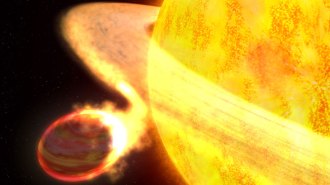 Space
SpaceRed giant stars that eat planets might shine less brightly
Some stars may shine less brightly after ingesting a planet. That finding, if confirmed, could have implications for calculating cosmic distances.
-
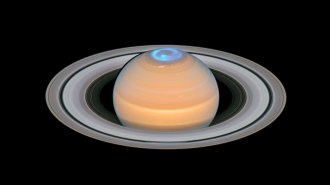 Space
SpaceSaturn’s auroras may explain the planet’s weirdly hot upper atmosphere
Data from NASA’s Cassini spacecraft could help solve Saturn’s mysterious “energy crisis.”
-
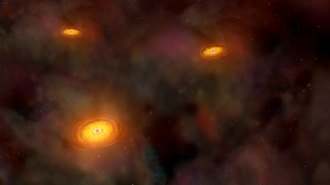 Quantum Physics
Quantum PhysicsQuantum mechanics means some black hole orbits are impossible to predict
Computer simulations reveal that foreseeing the paths of three orbiting objects sometimes requires precision better than the quantum limit.
-
 Health & Medicine
Health & MedicineCan plasma from recovered COVID-19 patients treat the sick?
Researchers are racing to set up clinical trials of antibody-rich convalescent plasma from recovered patients to treat or prevent COVID-19.
-
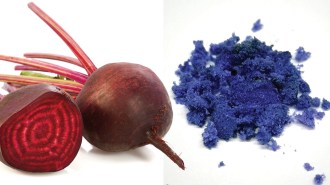 Chemistry
ChemistryBeets bleed red but a chemistry tweak can create a blue hue
A new blue dye derived from beet juice might prove an alternative to synthetic blue dyes in foods, cosmetics or fabrics.
By Carmen Drahl -
 Health & Medicine
Health & MedicineJust breathing or talking may be enough to spread COVID-19 after all
Until now, experts have said that the virus spreads only through large droplets released when people cough or sneeze, but it may spread more easily.
-
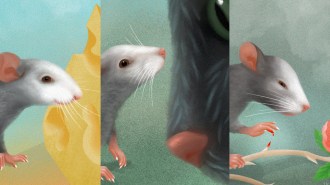 Neuroscience
NeuroscienceMice’s facial expressions can reveal a wide range of emotions
Pleasure, pain, fear and other feelings can be reflected in mice’s faces, sophisticated computational analyses show.
-
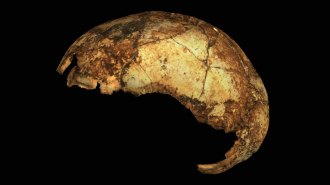 Humans
HumansSouthern Africa may have hosted a hominid transition 2 million years ago
Braincases excavated from the Drimolen caves suggest Homo erectus and Paranthropus robustus may have coexisted in southern Africa.
By Bruce Bower -
 Math
MathHow large a gathering is too large during the coronavirus pandemic?
Mathematical models explain why large gatherings are especially dangerous in an epidemic, and identify how large is too large.